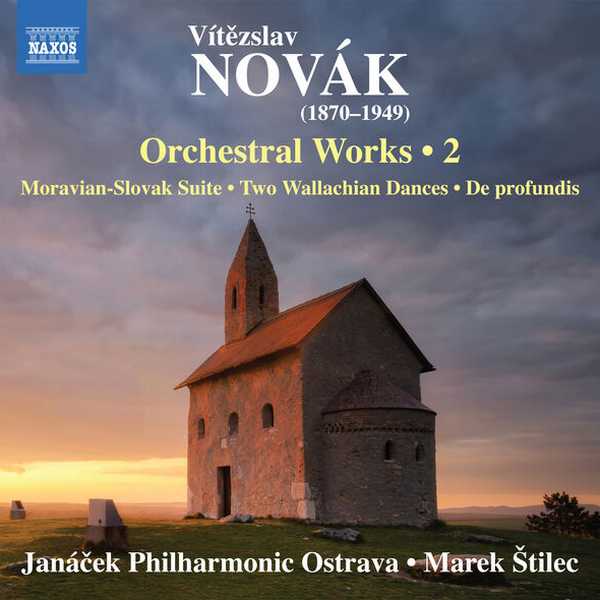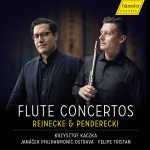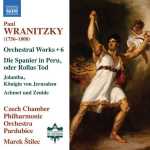
Composer: Vítězslav Novák
Performer: Pavel Svoboda
Orchestra: Janáček Philharmonic Ostrava
Conductor: Marek Štilec
Format: FLAC (tracks)
Label: Naxos
Catalogue: 8574369
Release: 2023
Size: 264 MB
Recovery: +3%
Scan: yes
Slovácká svita, Op. 32, for piano or small orchestra (orchestral version)
01. I. In Church
02. II. Among the Children
03. III. The Lovers
04. IV. The Ball
05. V. At Night
Wallachian Dances, Op. 34
06. No. 1, Troják
07. No. 2, Dymák
08. De profundis, Op. 67
Vítězslav Novák was one of the most important Czech composers of the late 19th and early 20th centuries. The Moravian-Slovak Suite is one of his most popular works, evoking an eventful and romance-filled day in a Slovakian village. Recorded here for the first time since its rediscovery by producer Jirí Štilec, the Two Wallachian Dances further invoke Novák’s passion for folk music. De profundis was written during the dark days of the Second World War. It includes an important part for organ which is unleashed with full force in one of the most triumphant conclusions in all of 20th-century music.
Vitĕzslav Novák was a student of Dvořák. At the last turn of the century, he was hardly known outside of Czech lands, but the Naxos label has set out to change that with a series of well-made recordings. This one, by Classical-era specialist Marek Štilec with the Janáček Philharmonic Ostrava, helps the cause along. The music will probably be unknown even to Czechs. The main attraction, the Moravian-Slovak Suite, Op. 32, was rediscovered by producer Jiří Štilec and here receives its first recording. Composed in 1903, it depicts a day in the life of a Slovak village. It is brisk, concise, romantic in more than one spot, and thoroughly entertaining. The Two Wallachian Dances, Op. 34, are even more heavily oriented toward folk music, and it would be interesting to know whether the young Bartók knew them. The final De profundis, Op. 67, is something else again, a genuinely tragic document marking the Nazi invasion of Czechoslovakia. To present it in 1941 to a mixed audience of Czechs and Germans was a gutsy move, even if there was no text. It is as grim as, but different in flavor from, Shostakovich’s serious wartime works, and it too deserves the new hearing it is getting here. A fine excavation job that may add new items to the 20th century orchestral repertory. The Janáček Philharmonic Ostrava shows the deep bench of Czech orchestras, and the performances are fully competent.



